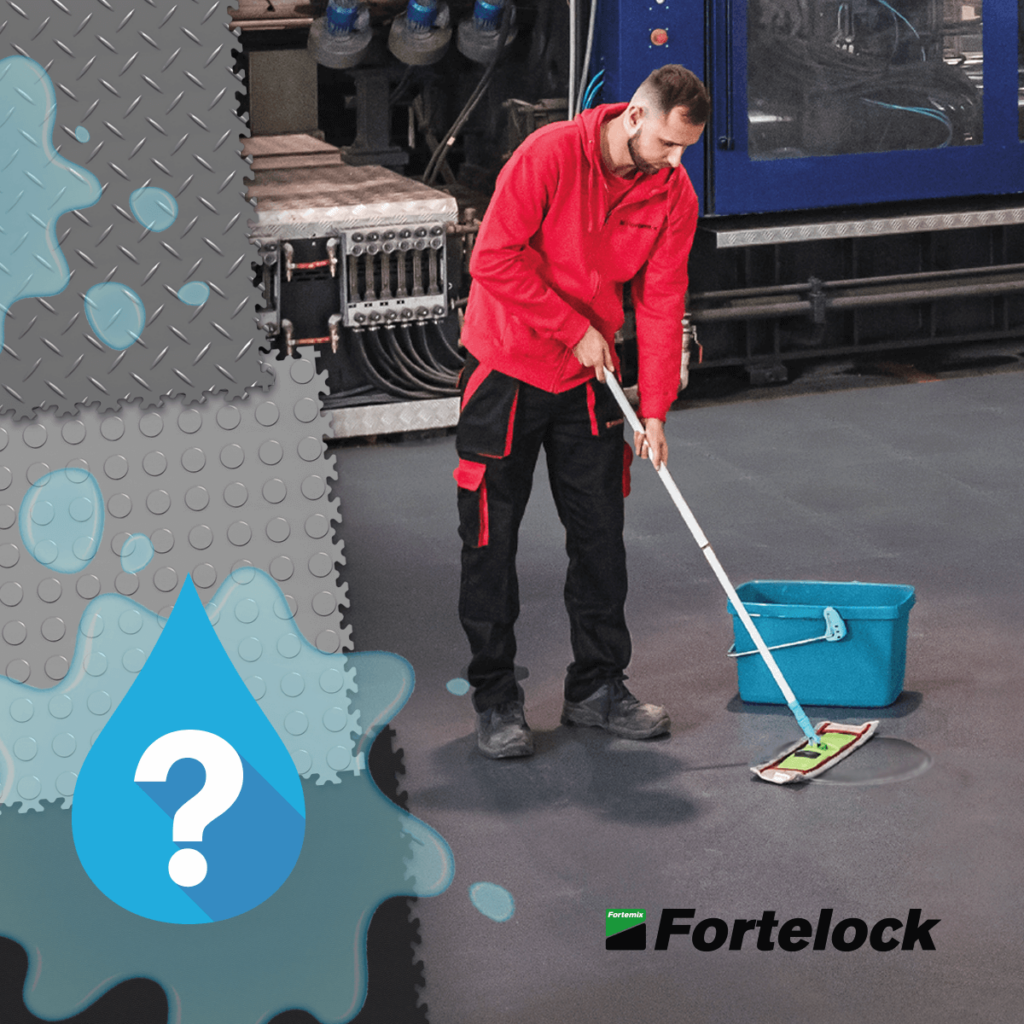Fortelock PVC Tiles – Water and Moisture Resistance
Fortelock PVC tiles are a popular choice for garages, workshops and industrial areas due to their durability and ease of maintenance. As winter approaches, there is a greater risk of tile coming into contact with water, rain or melting snow. Customers often ask us about the resistance of tiles to these conditions. In this article, we focus on the difference between water resistance and watertightness. We also describe how the Air flow system helps to protect Fortelock tiles from moisture.
We have designed Fortelock PVC tiles to withstand common mechanical stresses and various chemicals. This makes them suitable for use in many environments. Since we experience more water and snow during the winter season, it is important to understand how these factors can affect Fortelock PVC tiles and how to ensure their long-term functionality and aesthetics.
Water Resistance versus Watertightness
Fortelock tiles are water resistant, which means they resist water penetration to a certain extent. Water resistance includes the ability of the material to resist water and prevent it from penetrating through the surface. On the other hand, watertightness is an absolute term that refers to the complete inability of water to penetrate the material under any circumstances. In practice, this means that while Fortelock PVC tiles can effectively resist water on their surface, they are not completely impermeable. Water can penetrate through the joints between tiles in certain situations.
Air flow System
Despite the high tightness of Fortelock tile locks, water can find its way under the tiles. In these cases, the Air flow system, which is integrated into the underside of the tiles, comes into play. The Air flow system consists of so-called drainage channels that allow the drainage of liquids and support the evaporation and ventilation process. This allows for faster drying under the tiles and minimises the risk of moisture accumulation and subsequent damage to the floor. All tiles Industry contain this system.
Maintenance of Fortelock PVC tiles in Case of Contact with Liquids
If large amounts of liquids get on the surface of Fortelock tiles, for example from a spilled drink, dripping car or melted snow, you can easily remove the liquids. For example, a floor squeegee or other tools suitable for collecting and removing water can be used for this purpose. You can also find maintenance tips and advice in our videos.
Recommendations for High Humidity Environments
If moisture is already present in the subfloor, for example due to a waterlogged floor or other construction problems, we do not recommend installing Fortelock PVC tiles. In such cases, first address the source of moisture and ensure that the subfloor is dry and stable before installing the tiles.
Fortelock PVC tiles provide a durable and practical solution for flooring in many environments. Their waterproof properties, together with the innovative Air flow system, ensure that even in contact with water or snow, the tiles can effectively protect the floor and remain functional. However, in the event of persistent dampness from the subfloor, it is essential to ensure that this is rectified before installing the tiles to avoid potential dampness problems in the future.

